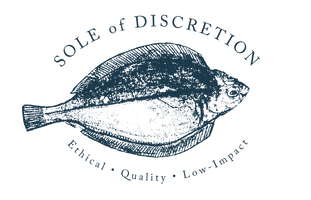Manifesto
- Our commitment is to procure fish and shellfish that have been caught with as little damage to the marine environment as possible, have contributed to the livelihood of small scale fishers and their communities and are of exceptional quality.
- Traceability: We know all our fishers and can trace your fish back to their boat.
- Quality: All our fish is iced at sea to ensure the fish reaches you in peak condition, and where applicable blast chilled before freezing.
- Fishing methods: All our boats are under 10 meters long. We use rod and line, static gill and trammel nets and mid-water trawls for shoaling species such as sardine or herring. Some of the flat fish species may occasionally be caught using light-weight bottom trawl, the gear does not impact or plough the seabed, the vessels carry low horse-power engines, and cover ground that is not coral or rock identified on the netters through VMS tracking and, over time, habitat mapping. We have documented substantial data and video footage which will become publicly available and is worked on in collaboration with local universities.
- Discards: We do not discard any fish unless we are legally obliged, and we refuse to replicate the wide spread practise of high grading. We believe that every fish has a value. We take all the landings from the fisherman, even those that hitherto have been of low value or discarded, matching your demand to the catch, to avoid incentivising discarding, not the catch to the market which incentivises such.
- Community owned: Our fisherman are paid an agreed price rather than market price and because the trading company is a Community Interest Company that the fishers own, profits go back into their fishing communities.
- Fair prices: We provide the fishers fish to your plate at a true cost, not at the expense of the sea. Instead of low-impact fishers receiving prices that are governed by the landings of the highly commercial factory vessels, we agree a fair price in advance. This means that even if the price on the market is very low because many fish have been landed, the low impact fishers are still rewarded. We are thereby creating a mechanism to reward good practise and preserve the ecology of the sea.
- Social: We believe in playing a role in keeping the skills of the inshore small-scale fisher intact, and that by guaranteeing them a fair prices and supporting sustainable fishing practices we are safe-guarding the productive future of our seas. The population of small-scale fishers in the UK has fallen from close to 10,000 to around 2,500 in just ten years, and the average age of a fisher is in the mid-50s. Our concern is that if we don’t reward these fishers for fishing with sensitivity to our seas, their knowledge will be lost forever.
- Carbon emissions: Our static-net fishers use relatively less fuel per kilo of fish than trawl caught fish. Passive fishing methods typically use 0.1 – 0.4 litres of fuel per kilo as compared to 0.5 – 1.5 litres for beam trawled caught fish.
- Fair play: We will campaign on the behalf of the disparate small-scale fishers on the basis that quota should be allocated according to environmental and social considerations as well as economic as newly required under Article 17 of the Common Fisheries Policy.
